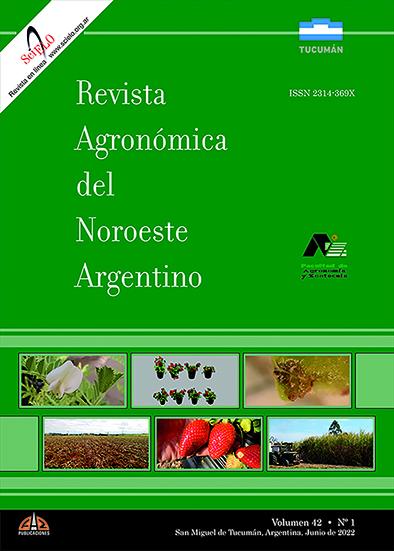Use of brassinosteroids as a strategy to increase tolerance to saline stress in petunia plants
Keywords:
Brassinosteroids, Petunia, SalinityAbstract
Salinity is one of the most damaging environmental factors for plants, and can severely limit the productivity and quality of crops. Many container-grown ornamental species are sensitive to salt accumulation in the root zone. Therefore, it is necessary to study other management alternatives that allow increasing tolerance to salinity to minimize the damage caused by said stress. The objective of this work was to study the effect of the brassinosteroid BB16 on the growth and floral development of Petunia x hybrida var. limbus network under conditions of increasing salinity. The plants were treated by aspersion to dripping point with BB16 0.1 mg.l-1, and then subjected to saline stress for 45 days, by irrigation with solutions at increasing concentrations of NaCl (50, 100, 150 and 200 mM) . Plants treated with BB16, showed a greater root length and a greater diameter of flowers in all the saline concentrations evaluated; a greater number of flowers at 50 and 200 mM NaCl and a reduction in flowering time under irrigation conditions with 200 mM NaCl, with respect to control plants. It was also possible to observe that the petunia plants treated with BB16 presented a lower loss of chlorophyll with respect to the control plants, at concentrations of 150 and 200 mM of NaCl. The marked protective effect of BB16 in petunia plants exposed to saline stress, would allow attenuating the harmful effects minimizing the losses of productivity and quality that this stress causes in the crop

Downloads
Published
Issue
Section
License
Copyright (c) 2024 Revista Agronómica del Noroeste Argentino

This work is licensed under a Creative Commons Attribution-NonCommercial-ShareAlike 4.0 International License.








